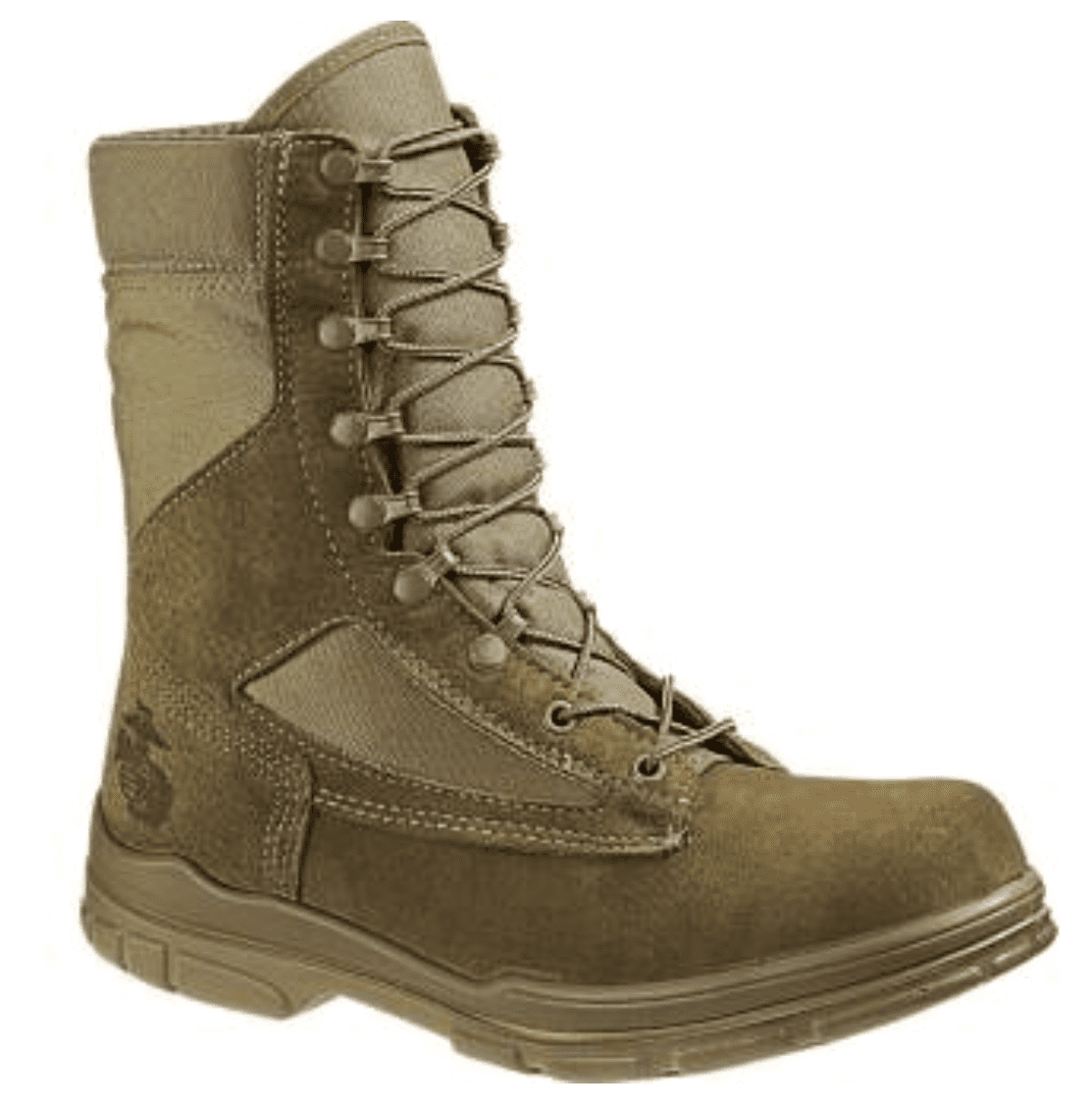Recently, we posted “Leader Book Notes” on boots from Sergeant Major of the Army, Raymond Chandler. While we applauded his candor, there was a very glaring error in the SMA’s information.
SMA Chandler stated that Warrior Leather is a “common use” term for pigskin. Turns out that is untrue. It is actually a trademarked product of Wolverine Worldwide. You know Wolverine because they own Bates Footwear. Wolverine is the parent company of 16 global brands such as Merrell, Saucony and Wolverine as well as Bates.
WOLVERINE WARRIOR LEATHER
Oil, stain and abrasion-resistant Wolverine Warrior® Leather is treated with Scotchgard™ protector to create an invisible, stain-resistant barrier that improves durability without changing the breathability, color or texture of the leather.
Boots with Warrior® Leather are easy to clean and engingeered to resist dirt, mud, motor oil, vehicle fluids, gasoline and other oil-based chemicals.
Once we found out that the term “Warrior Leather” was an actual product that people were buying, it was time to learn more. We ended up discussing this issue recently with the folks at Bates. They’re using it for good reason. Bates found that their WWL is lighter weight, absorbs less liquid, dries faster, retains flexibility better, and is more stain resistant than cattle hide.
The real question in all of this is “what has the US Army got against pigskin leather in the first place?” After all, the other services use it. If it’s good enough for the Marines, why not them?
The first issue that must be addressed is durability. Pigskin is, in fact, thinner than cowhide. Some would take that to mean that it is less durable. Bates shared that over the last 10 years, they have delivered in excess of two million pair of WWL leather combat boots to the US military via DLA contracts and military exchanges without a single documented case of leather failure. Plus, pigskin is more supple. It’s easier to work during the construction of footwear and it breathes better than cowhide.
When the US Air Force moved to adopt pig leather, we know that several Jewish Airmen came forward with their objections. We can imagine that Islamic Airmen may well have been concerned as well. However, cow leather has never been completely replaced by pig leather in US combat boots. It’s only been added as another material solution. So service members have never been placed in a position that would compromise their religious duties. While we understand the religious objections of Jewish and Islamic service members, the overall advantages of pig leather should be weighed as an additional material. Just like there are kosher and halal rations available to those that require them, they’ll still have footwear that meets their needs. Conversely, current issue boots force Hindu Soldiers to wear cowhide. If we are going to use religious grounds as a basis for this decision, all traditions should be considered.
One of the most compelling arguments for the adoption of pig leather is that it diversifies the supply chain for boots. Due to the very fragile nature of the US raw material supply chain it is critical the US military have multiple leather sources in the case of a delivery disruption. Right now, the other services can take advantage of such diversification. Now, it’s the Army’s turn.
The last reason I will cite is, for the Army, the most important reason. Pigskin leather is less expensive than cattle hide. It’s that simple. The Army is the largest consumer of clothing and footwear in DoD and could relieve the cost for boots both institutionally as well as for the individual Soldier with the adoption of pigskin leather for boots; at no performance cost. They can turn those savings around to improve other gear or hasten the transition to OCP.
The advantage is there for the Army if they would reconsider their ban on the use of pigskin leather for combat footwear. Now, we’re not advocating the full scale replacement of cowhide here, but rather the addition of pigskin as an authorized boot material. With the current transition to a new camouflage pattern, cut of the Army Combat Uniform and boot color underway, every option should be on the table, including this one. SSD urges the US Army to reconsider their ban in the use of pigskin leather for combat boots.
UPDATE: I forgot to include a reason. More pigskin = more bacon!














































































































